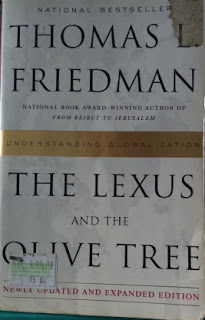Iran, although considered a US enemy and on the receiving end of US sanctions, is known for its film exports. It has been compared to China for producing films with social realist and/or neorealist touches. I have watched one when, surprisingly, UP hosted Iranian Film Festival, even though UP is largely very American despite denials from its students who come from elite families. Back then I was more into commercial films and just watched out of curiosity so one can definitely say that I didn't have a real appreciation of cinema as an art. I only remember the bleak atmosphere throughout the film and feeling depressed as I walked out of UPFI. Or maybe it was because of my lack of knowledge of West Asia and its affairs. Like, I know many people who don't appreciate Chinese films because they cannot understand the nuances, the puns, the language plays, and how everything fits into the whole film work. I think it was something like that for me with regards to West Asian cultural products.
So yesterday was my grandmother's birthday, coinciding with Mid-Autumn Festival. I initially planned to work on my thesis which I haven't touched for a month, momentum just died, or rather I am not feeling super excited to write the next few parts which have been playing in my head for months already. After migrating my draft to MS Word 365 which I got for free thanks to UP, I just fixed layout and didn't add anything substantial to the whole body of text. Imagine that, I even dug out my reference books. But you know, as has become customary, I would search for new stuff on YT and decided I wanted to watch a non-English or non-Chinese film.
Rain caught my eye, and it does not disappoint. It tells the story of a young Iranian named Lateef who is a troublemaker at a construction site where his only job is to prepare food and tea for the workers. Most of the workers are Afghans and are employed by Memar the site manager out of sympathy for these refugees. In truth, Afghans are not allowed to work in construction sites and a quick Google search will tell you that Afghan refugees entered Iran and Pakistan to escape their chaotic homeland which is left desolate starting from the 1979 Soviet invasion up to the present mainly due to the 2001 US invasion which also gave rise to many terrorist groups in the country. Now these Afghan workers must hide whenever inspectors visit the site or else they will be caught and Memar will be fined. We cannot exactly say that Memar exploits the refugees as these refugees also need to survive and in this world many people actually want honest work to survive. It is when there are no opportunities that desperate people turn to unlawful activities. Memar is actually in a difficult position of ensuring that he seemingly complies with the law and balancing that with providing a source of livelihood for the Afghans. I think this is the beautiful part in many Asian cultures, we have an innate sense of humanity and justice, unlike the western people (especially Americans) who are mostly soulless people who prefer laws to prevail without seeing the world's multifarious shades of gray.
 |
| Persian flatbread... looks yummy especially with spice-laden sauce. |
Lateef's life is changed when the newcomer Rahmat is deemed physically unfit for the hard manual labor and they are made to exchange roles. Rahmat is the son of Najaf who earlier falls from the building and gets a tremendous injury. Lateef makes life hard for Rahmat until one day he discovers that Rahmat is actually a girl. Since then, his treatment of Rahmat changes and he keeps silent over his discovery. One day, Rahmat is chased down by inspectors and Lateef fights with the inspectors telling Rahmat to run. Rahmat loses her job at the construction site and shifts to working at a dam where other young girls (probably Afghanis also) transfer boulders to the river bank. We see Rahmat's hardships through Lateef's eyes who in turn becomes a changed man. He borrows money from Memar to give to Soltan who in turn is to give to Najar. In this particular scene, we can see that Lateef must really have felt Rahmat's hard life when he tears up and turns emotional while talking to Memar. But Soltan escapes to Afghanistan himself as relayed by his messenger to Lateef. The messenger says that Soltan has had a hard life and he needs the money and leaves a note to Lateef saying he will pay him back. Lateef tries to borrow money from Memar again but his request is denied. He sells his Iranian ID for a sum and gives to Najar, learning that the family will leave for Afghanistan the next day.
Shoe fixer to Lateef: From the hot fire of being apart comes the flame that burns the heart.
Lateef sees Rahmat off, whose real name is Baran (Rain). As Baran heads to the truck, her shoe slips in the mud and Lateef picks it up and puts her foot in it, a very telling gesture of courtship. Lateef smiles as the rain starts to pour filling the footprint with rainwater. And this is how we understand Baran's role in Lateef's life, her existence fills the void in his life and changes him. And it is also a good symbolism, a mark indeed that she left on him forever.
 |
| Rainwater fills Baran's deep footprint |











